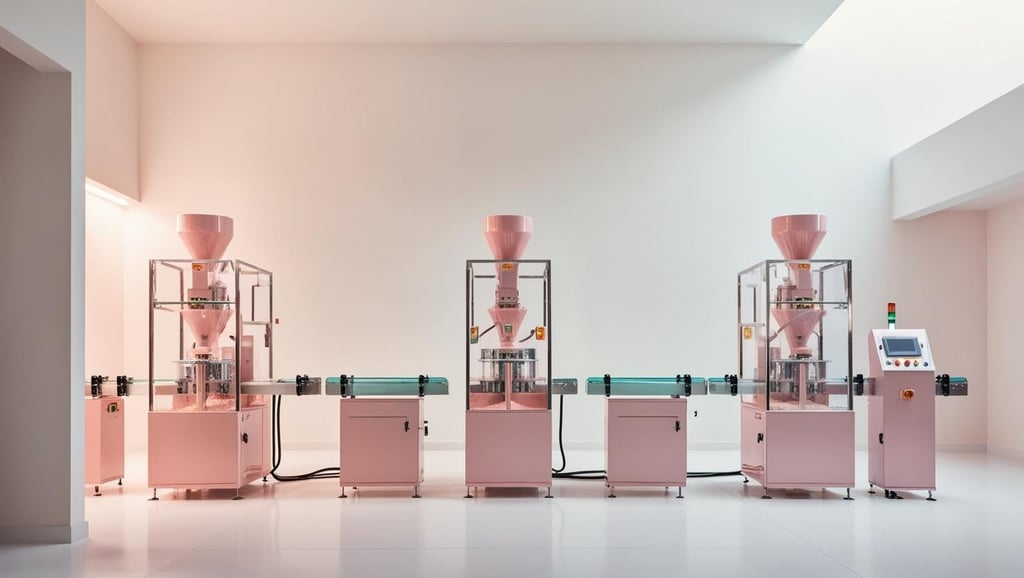Text Us for quickest response - 773.584.1804
The Cons of Toll Manufacturing
Let's Dive Into the Cons of Toll Manufacturing
COPACKING
Josh
12/30/20243 min read


If you’re not sure what Toll Manufacturing is? Check out our blog diving into that topic!
The Cons of Toll Manufacturing
Toll manufacturing has a lot going for it, but it’s not a perfect fit for everyone. Like anything else, it comes with a few challenges you’ll want to think about before diving in. Here’s the other side of the coin.
1. You Have to Source Your Own Materials
With toll manufacturing, you’re in charge of supplying the ingredients and packaging. That can be a huge plus if you already have trusted suppliers, but it can also be a hassle if you’re just starting out.
You’ll need to:
Find reliable suppliers for raw materials.
Manage shipping and delivery timelines to keep production on track.
Handle ingredient quality checks before sending them to the manufacturer.
If you’re not ready to juggle sourcing and logistics, this part might feel like extra work.
2. Less Control Over Production
Since the manufacturer is running the equipment and managing the process, you’re putting a lot of trust in their hands. You’re not on the production floor overseeing every detail, so clear communication is key.
What this means for you:
You need to work with a manufacturer that’s transparent and responsive.
You’ll rely on updates and reports instead of seeing the process yourself.
If the manufacturer doesn’t deliver on time, your schedule takes the hit.
Not all manufacturers are created equal. That’s why it’s important to choose a partner (like StickPax) who values communication and accountability.
3. Higher Per-Unit Costs for Small Runs
Toll manufacturing is great for testing products and keeping costs low upfront, but smaller runs usually mean higher per-unit costs.
Here’s why:
Setup and production line prep cost the same whether you’re making 1,000 units or 100,000 units.
Low MOQs give you flexibility, but you may not get the volume discounts that larger runs offer.
If your long-term plan is to scale up quickly, this may not be an issue. But if you’re sticking to smaller batches, it’s something to keep in mind.
4. Communication Gaps Can Cause Problems
Working with a third party means communication has to be clear, consistent, and detailed. If it’s not, things can go wrong fast.
Potential issues include:
Misunderstandings about formulas, quantities, or timelines.
Delays if the manufacturer doesn’t get approvals or materials on time.
Bottlenecks when questions don’t get answered quickly.
Good manufacturers (like StickPax) make communication a priority. But not every manufacturer is built the same, so you’ll need to vet your partner carefully.
5. Reliance on a Third Party
When you work with a toll manufacturer, you’re trusting them to get it right—every time. That’s great when the relationship works, but it can also be a risk.
If the manufacturer runs into issues—machine breakdowns, staffing shortages, or delays—you’re at their mercy. And if something goes wrong with quality control, it’s still your name on the product.
This is why working with a reliable partner matters. You need a manufacturer that’s upfront about timelines, clear about processes, and invested in keeping your product on track.
The Bottom Line
Toll manufacturing is flexible, affordable, and scalable—but it’s not completely hands-off. You’ll need to manage sourcing, stay on top of communication, and make sure your partner is up to the task.
For most brands, the pros outweigh the cons, especially if you’re working with a manufacturer that knows what they’re doing. But it’s always smart to go in with eyes wide open.
If you’re wondering whether toll manufacturing is the right fit for your brand, StickPax can help you figure it out. Let’s talk.
Interested to read about the pros of toll manufacturing? Read our blog here!

